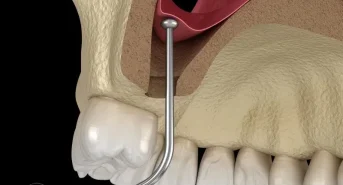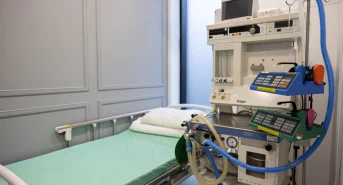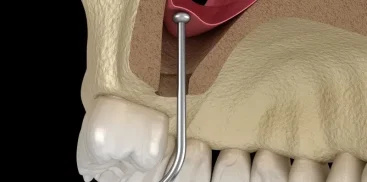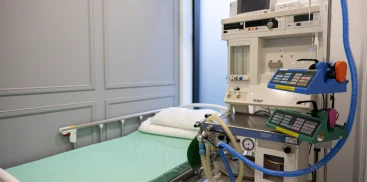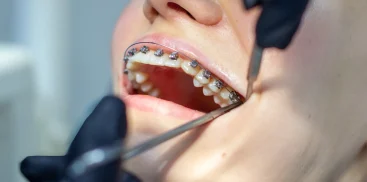Tooth root resection (apicoectomy) is a dental surgery procedure, most often performed in the case of periapical tissue inflammation. Often, this is the only way to access the source of inflammation causing pain in the patient. What is the course of tooth root resection, indications and contraindications for this procedure?
What is root resection?
Root resection involves amputating the apex and removing lesions within the tooth root. It is most often performed on single-rooted teeth such as incisors and canines. In this way, further inflammatory changes can be prevented and teeth can be saved from extraction.
Indications for tooth root resection
Resection of the root apex is performed when repeated root canal treatment is not possible or when periapical lesions do not respond to this treatment. Other indications for tooth resection are:
- fracture of the tooth root apex;
- dentomas (pulp stones) – degeneration of the dental pulp in the form of calcified deposits of
- mineral salts occurring in the lower incisors, molars, impacted and unerupted teeth;
- inflammation of periapical tissues;
- unsuccessful endodontic (root canal) treatment and subsequent complications;
- complications that may occur in the treatment of teeth with prosthetic restorations, in particular
- with crown-root posts;
- fracture of a dental instrument located in the root canal;
- spontaneous death of the tooth and persistence of inflammatory changes around the root.
Apicoectomy, i.e. tooth root resection, is performed by a specialist in dental surgery or endodontics.
Contraindications to tooth root resection
However, there are also contraindications to dental root resection. The most important of them is the extent of inflammatory changes exceeding 1/3 of the root length. Apicoectomy is not performed on primary teeth, and other contraindications include health problems such as:
- longitudinal tooth root fracture;
- periodontal disease;
- bite disorders;
- inflammation of the throat or mouth;
- viral disease (herpes);
- 1st trimester of pregnancy;
- diabetes;
- leukemia;
- blood clotting disorders;
- hypertension;
- thyroid or kidney diseases.
Some of the contraindications listed are relative and allow the procedure to be performed by an experienced dentist. Therefore, each time the possibility of tooth resection is performed, the dentist is consulted and informed about any health problems.
The course of the tooth root resection procedure
The tooth resection procedure is preceded by an X-ray. The dentist also conducts a thorough medical interview of the patient, asking him about past and current diseases. If there are no contraindications to the procedure and it is impossible to perform endodontic treatment, the doctor proceeds to the next stages of apicoectomy. These are:
- administering local anesthesia to the patient;
- incision of the mucous membrane around the root;
- cutting out a window in the bone and removing the diseased root tip;
- retrograde fillings, i.e. tight filling of the root canal from its apex;
- suturing the wound.
Apicoectomy is performed using a dental microscope, which ensures the effectiveness of the treatment. The stitches are removed from the wound one week after the procedure.
Does tooth root resection hurt?
The resection procedure is performed under local anesthesia, so it is completely painless for the patient. Sometimes, after the procedure, there may be swelling, redness, pain and bleeding, and sometimes a slight tingling sensation in the treated area. However, all these symptoms disappear after a few days, provided that the recommendations after the procedure are followed. Remember that you should avoid heavy physical exertion, do not eat hot food and do not rinse your mouth intensively. It is advisable to consume semi-liquid food for 2-3 weeks, thanks to which the patient will avoid irritation of the treated area.
Tooth root resection – price
The cost of tooth root resection depends on many factors. First of all, it depends on which teeth – front or side – will be treated. The price is also influenced by the need to carry out additional procedures, including: preparation and filling of the root canal. The patient learns the final cost during the first visit to the dentist’s office, when he establishes a treatment plan with the dentist.
Root resection – is it worth it?
Apicoectomy is sometimes the only way to get rid of pain caused by inflammation, so it is worth considering it if other treatment methods do not give the expected result. We invite you to the Warsaw Dental Center, where tooth root resection procedures are performed by specialists in the field of dental surgery and endodontics in a pleasant and patient-friendly atmosphere.

